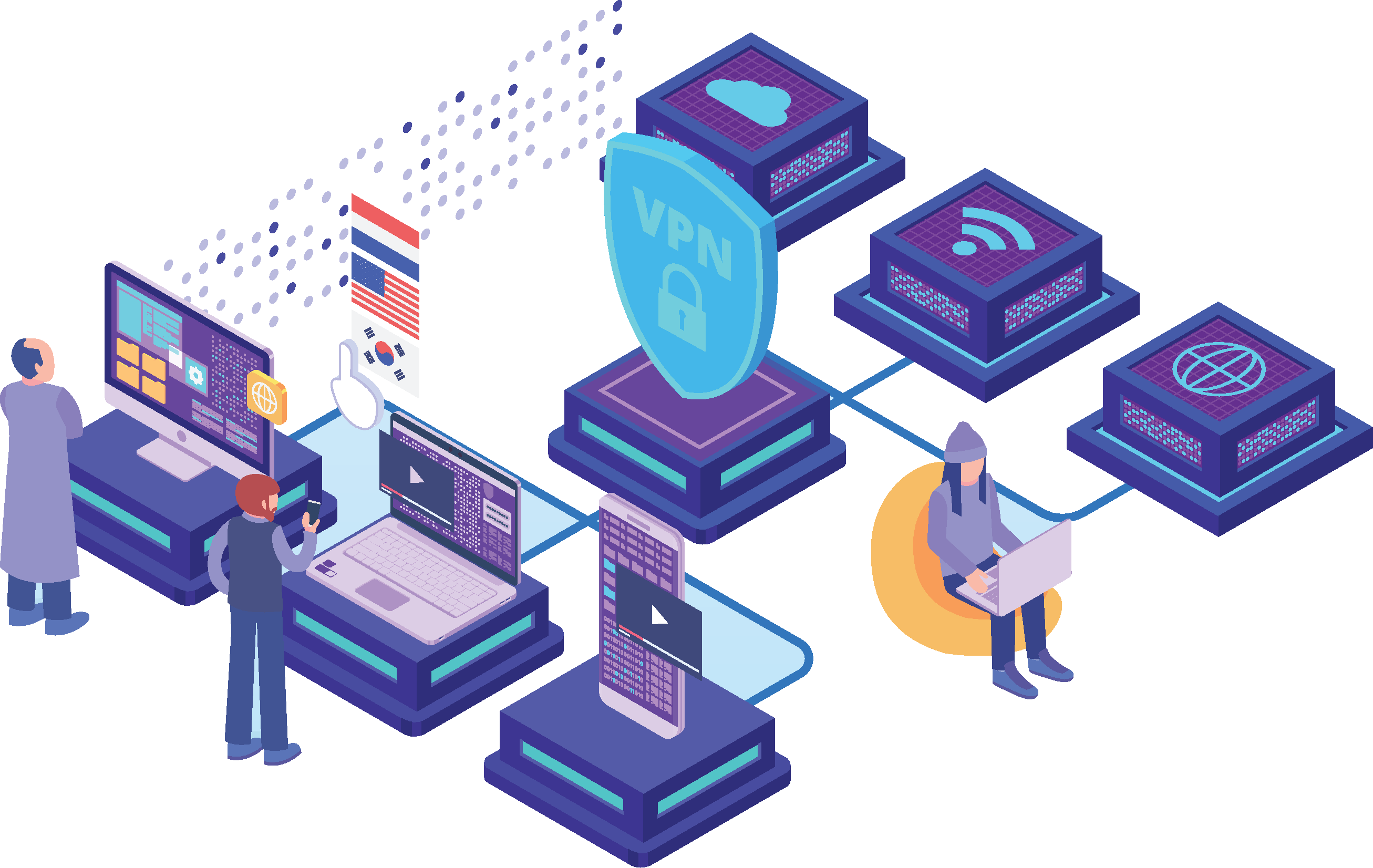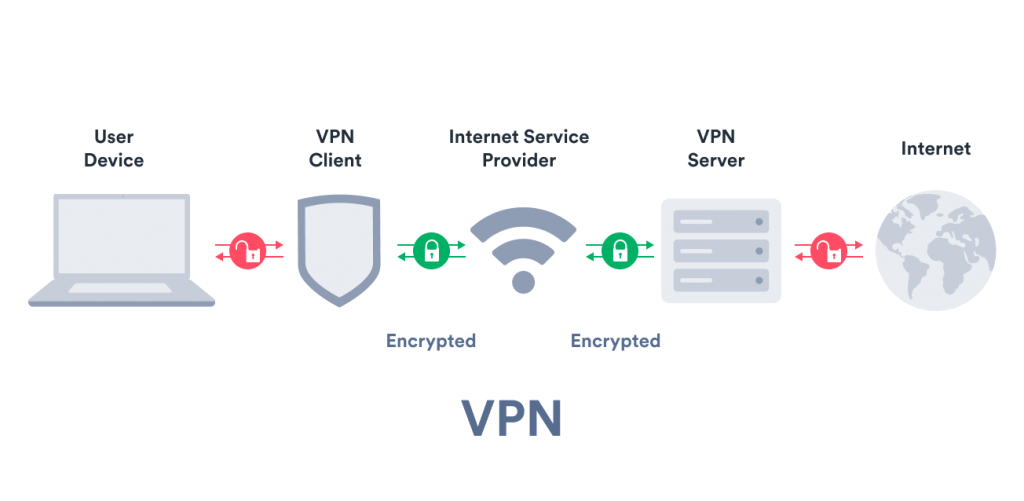VPNs
Virtual Private Networks for securityprivacy

Use the internet with enhanced security and privacy or connect to intranets securely

How does a VPN work?
A VPN protects you by encrypting and disguising your traffic. It also reroutes your data packets through one of its VPN servers.
By doing so, a VPN changes your visible IP address. A VPN makes it appear as if you’re browsing from the VPN server’s location instead of your device.
That’s why you can appear virtually anywhere in the world using a VPN! This feature greatly improves your privacy and is one of the two primary reasons that make a VPN so useful. The other one is security.
How a virtual private network secures your traffic
When you connect to the internet via a VPN, it establishes a secure virtual tunnel (i.e., a secure connection) between itself and one of its servers. This tunnel is then used to transfer all of your internet traffic originating from your apps and websites.
But the VPN connection goes a step further. To ensure the tunneling process is secure, the VPN client and the VPN server encrypt your data (English: turn into scrambled, unreadable code) using a shared key (more about this below).
The VPN client and the VPN server do this every time data travels through the encrypted tunnel. This way, no one can snoop on your traffic. When the data passes through – it’s rearranged again, i.e., decrypted into readable text.
This way, a VPN ensures that your IP address, location, and online identity remain hidden from your internet service provider and third-party websites.

Want resilient VPN services?
Talk to us about how you can secure your networks
Key Benefits
Let’s Get in Touch
LET'S TALK ABOUT YOUR VPN NEEDS
Call, email or drop us a message

